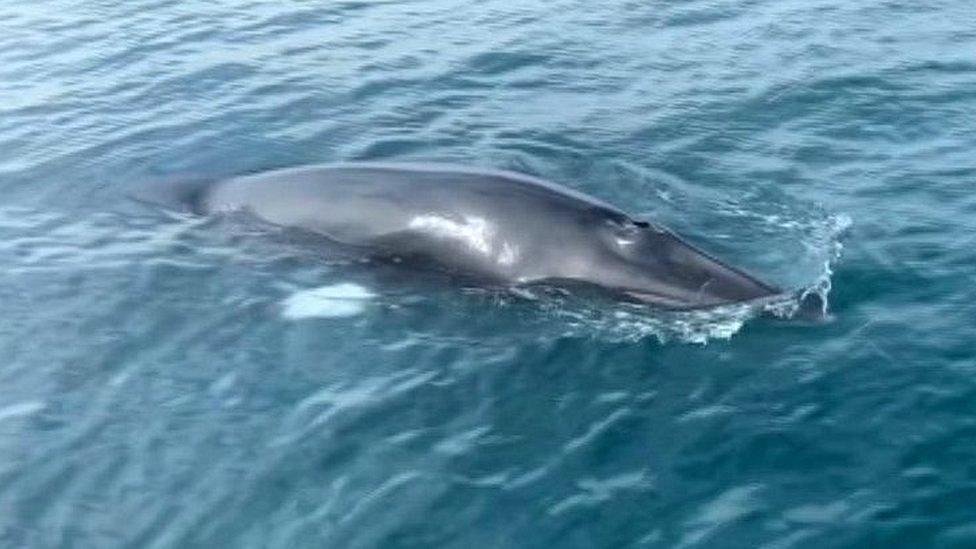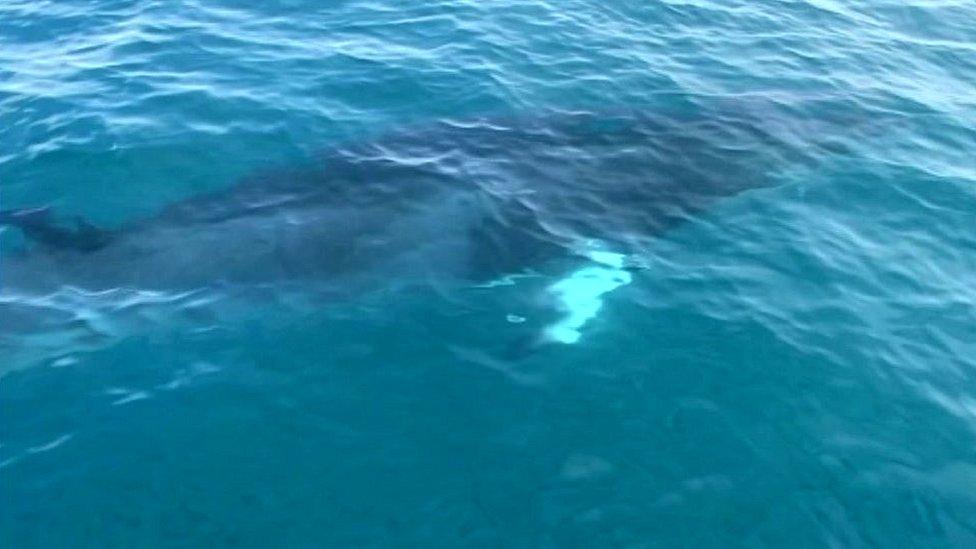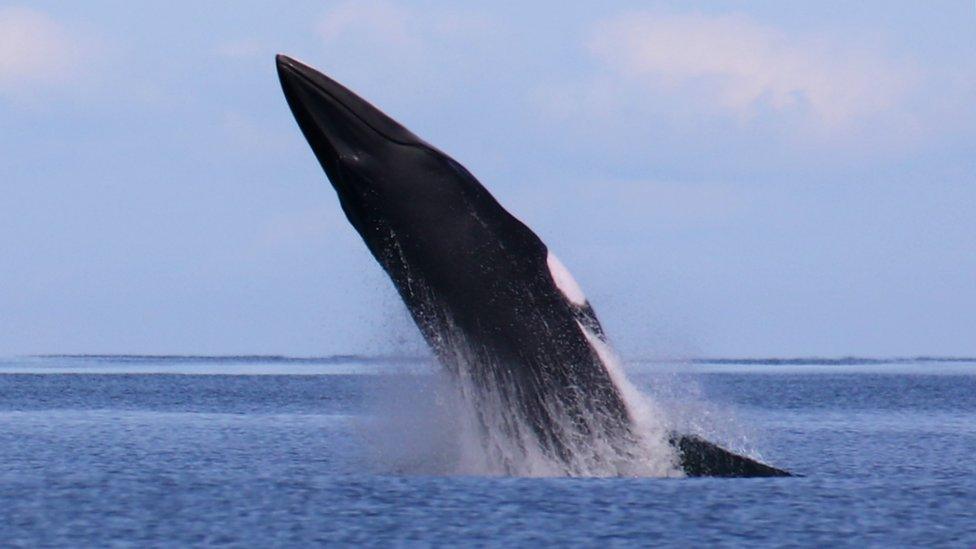Minke whale: Angler enjoys rare encounter in English Channel
- Published

Whale expert Prof Peter Evans said such sightings were unusual in the English Channel
A man who shared a rare encounter with a minke whale in the English Channel while fishing has said the experience was "magical".
Dave Duggan and his friend Luke Edir spotted the marine mammal while out at sea off Eastbourne on Saturday.
Mr Duggan, from St Leonards-on-Sea, said the whale was about 25ft (8m) in length and had stayed alongside his boat for about five minutes.
Whale expert Prof Peter Evans said such sightings were unusual in the Channel.
"In the western English Channel, the species is regular as far east as South Devon across to the Channel Isles, but east of there, minkes are very scarce," he said.
Mr Duggan, who often fishes in the area, said it had been "an honour" to see the creature.
He added that while they had seen dolphins in the waters before during their regular fishing trips, it was the first time he had seen a whale.

Prof Evans said the whale must have been lured to the area by "good food"
Prof Evans, who is the director of the Sea Watch Foundation and honorary professor at Bangor University's School of Ocean Studies, said he only knew of four previous sightings of the species in the region in the last 20 years.
He said a "relatively small number" of minke whales spend the winter in UK waters.
"Most minkes occur offshore in the North Atlantic between November and March," he said.
"They start to migrate into shelf seas around Britain in April, but with the great majority of the population occurring in the central and north-western North Sea, the Northern Isles, and in the waters west of Britain."
He added that minke whales feed on sand eels, sprat, young herring, other "shoaling small fishes" and zooplankton and there "must be good food for this animal to bring it into this area".
Thea Taylor from Sussex Dolphin Project said the sighting was a "fantastic example" of how "rich and diverse our seas can be".
"While confirmed sightings of large marine mammals are uncommon, they do travel through Sussex waters," she said.
"We are hopeful that as more people get to see how much life is in our waters, they will be inspired to protect our local marine environment and the amazing creatures that live there."

Follow BBC South East on Facebook, external, on Twitter, external, and on Instagram, external. Send your story ideas to southeasttoday@bbc.co.uk, external.
- Published9 June 2021
